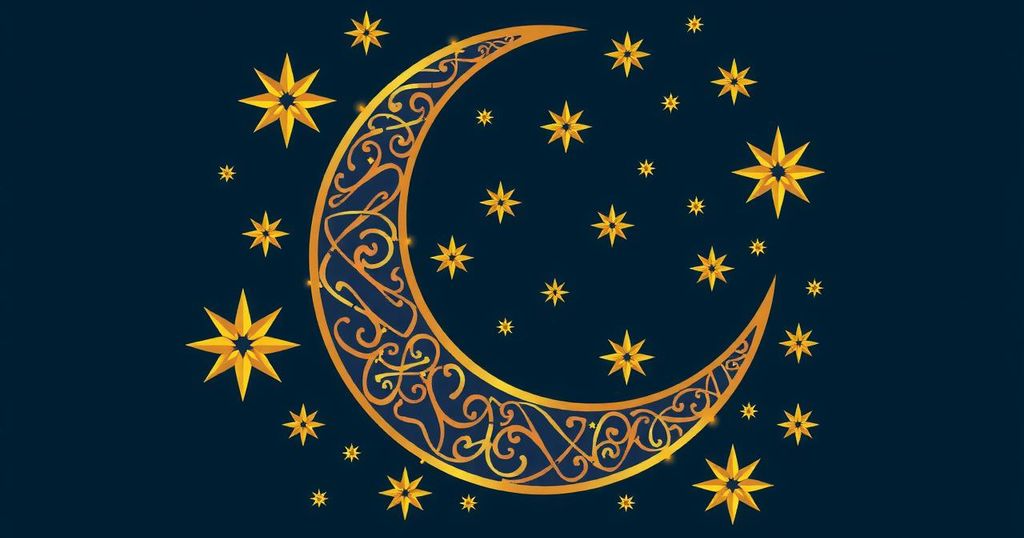Eid-ul-Fitr 2025: Anticipated Dates of Celebration in Various Regions
Eid-ul-Fitr 2025, celebrated at the end of Ramadan, is expected on March 31 in South Asia and March 30 or 31 in the Middle East, depending on crescent moon sightings. Ramadan begins on March 2 in India and March 1 in the Gulf. Exact dates rely on lunar observations.
Eid-ul-Fitr, commonly known as Ramzan Eid or Meethi Eid, is a significant Islamic festival that celebrates the conclusion of Ramadan, a month of fasting observed by Muslims worldwide. Recognized as the ‘Festival of Breaking Fast,’ it symbolizes spiritual renewal and community togetherness. The year 2025 will witness the commencement of Ramadan in India on March 2, following the moon sighting on March 1, while countries in the Gulf will begin a day earlier on March 1.
Eid-ul-Fitr is celebrated during the first three days of Shawwal, the 10th month of the Islamic lunar calendar. The precise dates for Eid are contingent upon the moon sighting; however, predictions can be made. For South Asian nations such as India, Bangladesh, and Pakistan, Eid is anticipated to fall on Monday, March 31, if the crescent moon is sighted on March 30, which marks the 29th day of Ramadan. If the moon is sighted on March 31, Eid celebrations will occur on Tuesday, April 1.
In contrast, Middle Eastern countries, including Saudi Arabia, the UAE, and Qatar, are expected to observe the crescent moon on March 29. Consequently, Eid is likely to be celebrated on March 30, unless the moon is not sighted, in which case the celebration will move to March 31. The dates for Eid remain subject to the lunar cycle, highlighting the adaptability of the Islamic calendar.
Eid-ul-Fitr 2025 is a religious milestone for Muslims, marking the end of Ramadan and fostering community spirit. The festival’s dates vary depending on the sighting of the crescent moon; in South Asia, Eid may be celebrated on either March 31 or April 1, while in the Middle East, it is anticipated on March 30 or 31. The fluidity of these celebrations underscores the significance of lunar observations in Islamic traditions.
Original Source: indianexpress.com




Post Comment